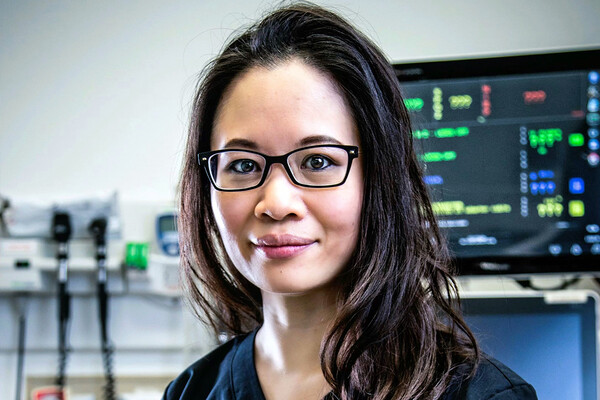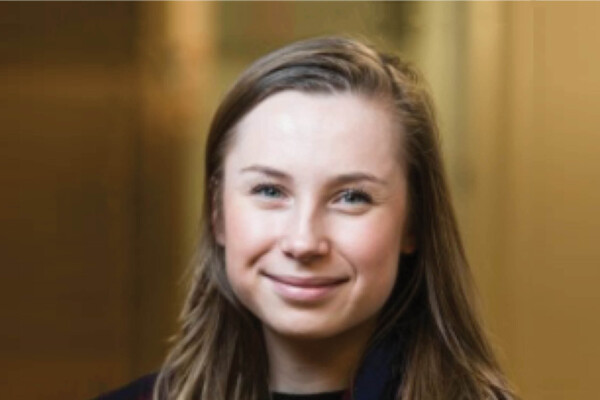Breadcrumbs
- Home
- MD/PhD Program
- News
- Class of 2T2: Highlights, Challenges and Words of Wisdom
Class of 2T2: Highlights, Challenges and Words of Wisdom
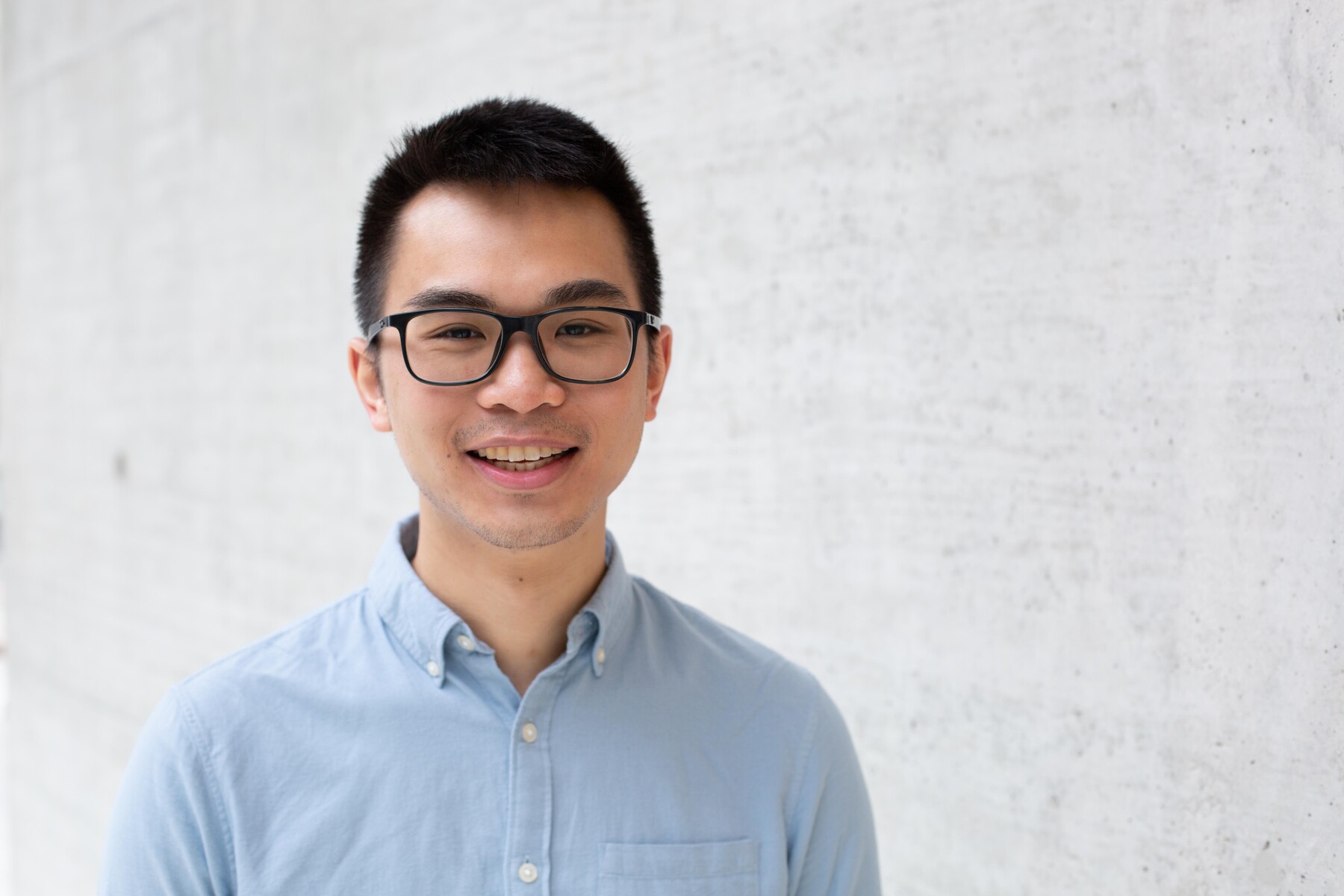
Justin Lim
Graduating from: MD Program
Up next: Residency in ObGyn, University of Toronto
I don't think I truly knew what I was getting myself into when I decided I wanted to become a physician – I just knew I wanted to contribute to my community in a meaningful way. Through the growing pains of medical school, I learned that there is something incredibly special about how our profession affords us the opportunity to be with people at some of their most vulnerable moments. The highs are high and the lows are low, but ultimately caring for others is central to what continues to draw me in to this profession.
Without a doubt, the most remarkable highlight of medical school has been watching my friends and classmates grow as people, as a community, and as future physicians - and growing alongside them. It was so wonderful watching everyone comfortably settle into their future specialties this last stretch of medical school, and be truly excited about going into our respective clinical spaces. I feel eternally grateful to have been surrounded by and met so many incredible humans who I have no doubt will do some big things in this world.
Medical school has been filled with many "firsts" – which is what makes these four years so fulfilling and exciting, but so darn challenging at the same time. Navigating these "firsts" kept me on my toes as I quickly learned that we all have things we're good at (and things we're not so good at...). It's funny remembering how nervous I was to take my first patient history. Now, that list of new experiences has exponentially grown, all the way from delivering my first baby, to experiencing my first patient death. Learning how to sit with these experiences will be something I will be working on for years to come.
I am eternally grateful to the people who have been in my corner cheering me on from day one. My support system of friends and family both inside the bubble of medicine, and outside, have been pivotal in keeping me grounded and true to myself. I am also indebted to two physician mentors - Dr. Rohan D'Souza who first sparked my interest in OBGYN, and Dr. Lindsay Shirreff who has kept that spark burning bright. I am confident that I wouldn't be where I am today without these two mentors of mine. I feel so lucky to be on the path I am and to have found a specialty that feels like a great fit.
I am extremely excited (and nervous) for the many upcoming milestones that come along with an OBGYN residency, and am really looking forward learning how to do things with my hands. I remember learning how to throw my first knot a few years ago, and it still hasn't hit me that soon enough I'll be learning how to operate.
Advice for incoming students: You will constantly feel like you don't have enough hours in a day – I remember feeling like I just did not ever have enough time. But I promise you that you do have time, and you will finish medical school excellent and competent. You can spend that extra hour calling home, cooking a meal for yourself, grabbing a drink with a friend. The truth is, your to-do list will never end and the demands of medical school will feel overwhelming at times, but give yourself permission to do the things you need to do for you.
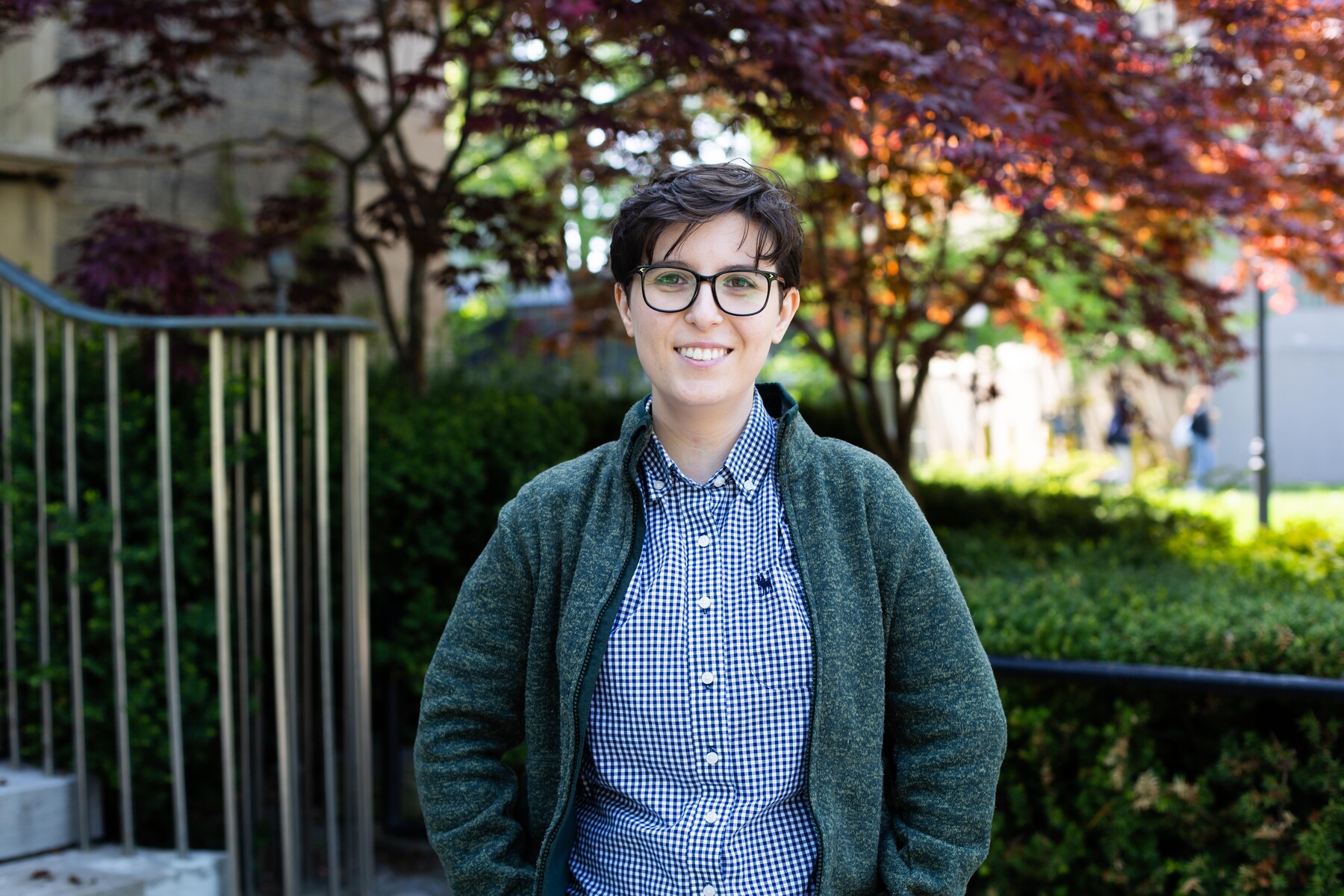
Jordi Klein
Graduating from: MD Program
Up next: Residency in Emergency Medicine, University of Toronto
I became interested in medicine because of my own experiences as a patient, which led to an academic interest in co-design for healthcare systems and institutions. I’ve had some opportunities to use a co-design approach in creating lectures and resources for the MD program, and am excited to continue this work in residency. My experiences as a patient also cemented the importance of medicine as advocacy, and I’m motivated to continue my advocacy work supporting the healthcare needs of marginalized and underrepresented communities.
It’s true what they say – the days are long but the years are short! Med school was a collection of so many highlights. From de-stressing in the med lounge after an anatomy bellringer to delivering a baby for the first time, it’s amazing how much you grow in such a short amount of time. Among my greatest highlights were getting to know so many bright, hardworking, passionate future colleagues, who inspire me to be a better doctor and a better person (and also patiently take my consults from the ED).
I struggled a lot with impostor syndrome in medical school. I felt like I wasn’t cut out to be a doctor, that I didn’t belong here. It got worse in clerkship, as I would agonize over every little mistake, fearing it evidence that all my worst fears were true and I actually wasn’t good enough after all. Over the course of clerkship, my mentors helped me feel more grounded and learn to adopt a growth mindset. The impostor syndrome is still a work-in-progress but it’s become easier to see mistakes as opportunities to grow. Learn by failing!
I’ve been incredibly lucky to have so many supportive mentors and colleagues throughout my training, and I’m looking forward to having the opportunity to pay it forward by teaching, supporting, and mentoring other learners here at U of T. My training would not have been the same without the residents who taught me procedures, got me coffee on night shifts, cried with me after patient deaths, coached me through tough days, and so much more. I hope to be that resident for future medical students.
Advice for incoming students: Each of you has something special to bring to this work – whether that’s a particular clinical interest, a life experience, a niche hobby, or an advocacy goal. Don’t be afraid to bring your full self into medical training. Let your strengths be your strengths, and find the people and places that help you feel like the best, most authentic version of yourself.
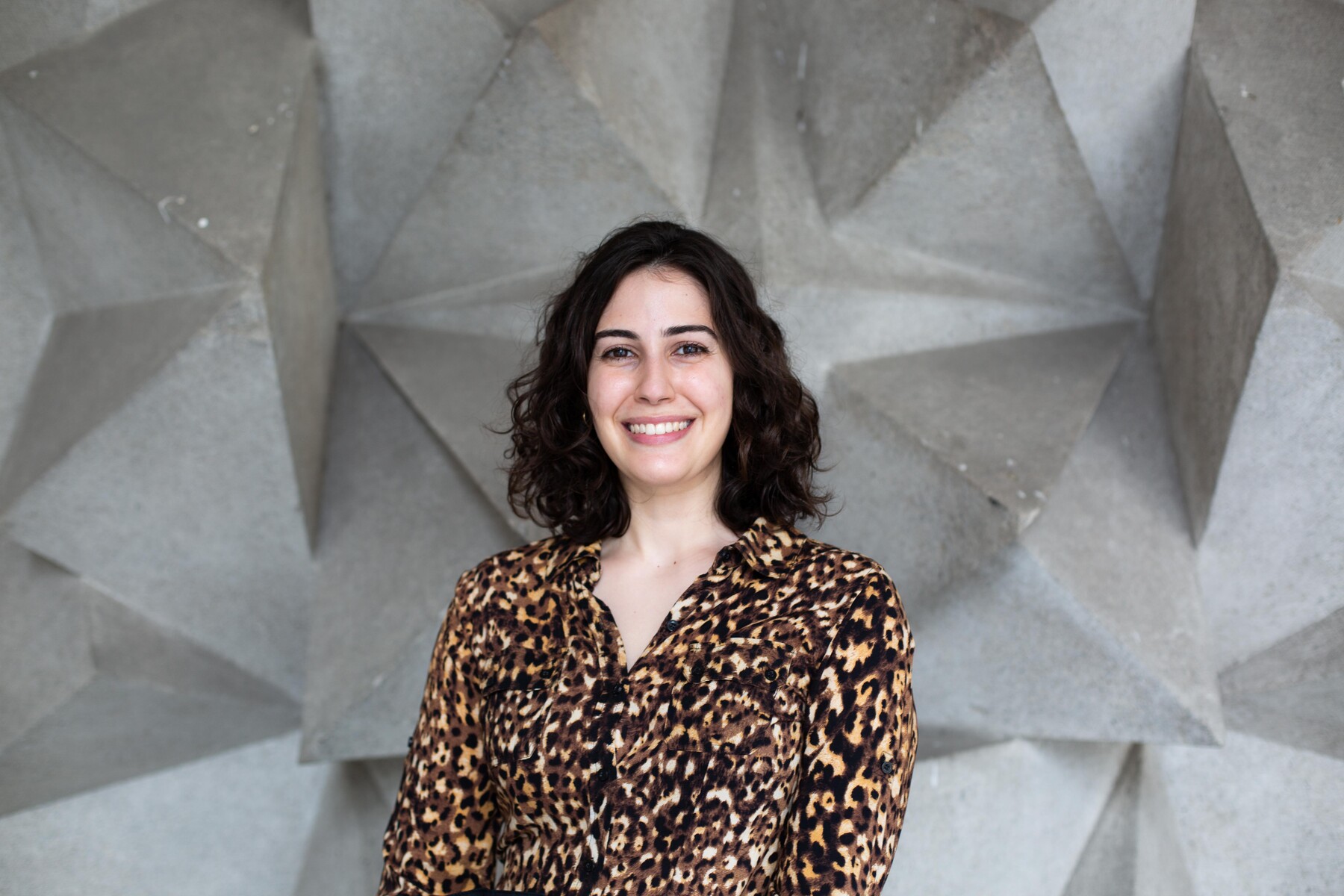
Alainna Jamal
Graduating from: MD/PhD Program
Up next: Residency in Internal Medicine, University of Toronto
I started my first research project as a BSc student in 2010 under the skillful mentorship of Dr. S. Joseph Kim and Dr. Shahid Husain in the Multi-Organ Transplant Program at Toronto General Hospital. They were the first to show me the physician-scientist career path, and I was fascinated! I saw research and clinical medicine as inextricably linked – I wanted to treat individual patients, while leading a research program that improves patient care and healthcare systems. I am most interested in infectious diseases and epidemiology, particularly antibiotic resistance.
My research focuses on understanding transmission of antibiotic resistant bacteria in hospitals and communities, using epidemiological and genomic methods. These data allow us to make policy recommendations for infection prevention and control programs in Ontario. Antibiotic resistance has already begun to dismantle modern medicine. Globally, over 1.2 million deaths annually are attributed to antibiotic resistance - more deaths than are attributed to malaria and HIV/AIDS. Every year in Canada alone, antibiotic resistance causes 5,400 deaths, costs our healthcare system $1.4 billion, and reduces our GDP by $2 billion. The health and economic impacts of antibiotic resistance are just staggering.
The greatest highlight of my experience in the MD/PhD program was the opportunity to be rigorously research trained by my PhD supervisor, Dr. Allison McGeer, as our team worked on new and evolving public health challenges (antibiotic resistance, and toward the end of my PhD, COVID-19). She is an authority in her field who also takes mentorship seriously - she gave me independence, while always offering constructive criticism and generous support. She has had a profoundly positive impact on my career.
I'm looking forward to honing my clinical skills and gaining independence as a physician, serving as a teacher and mentor to my junior peers, and answering the next question on my research agenda.
As for people who’ve helped me get to this point – there are too many to name. Family, friends, and teams of interdisciplinary colleagues in research and clinical medicine. A few are highlighted below.
Research and academic: Dr. Allison McGeer (PhD supervisor) and team/collaborators, Dr. Andrew Morris (Students for Antimicrobial Stewardship Society faculty advisor), Dr. S. Joseph Kim and Dr. Shahid Husain (BSc research supervisors), professional societies (ESCMID, IDSA, SHEA). Clinical (Department of Medicine): Dr. Nadine Abdullah, Dr. Savannah Cardew, Dr. Tarek Abdelhalim, Dr. Helena Dhamko.
Advice for incoming students: Motivation should be intrinsic. Work hard and persevere. Decide how you want to improve the lives of the patients and communities we serve. Then find the training program(s) and the people that will teach you the skills you need to lead change. The people who train you should challenge you and be critical of your ideas - they should also support you. Open doors for junior peers. Approach everything with a diversity, equity, and inclusivity mindset.
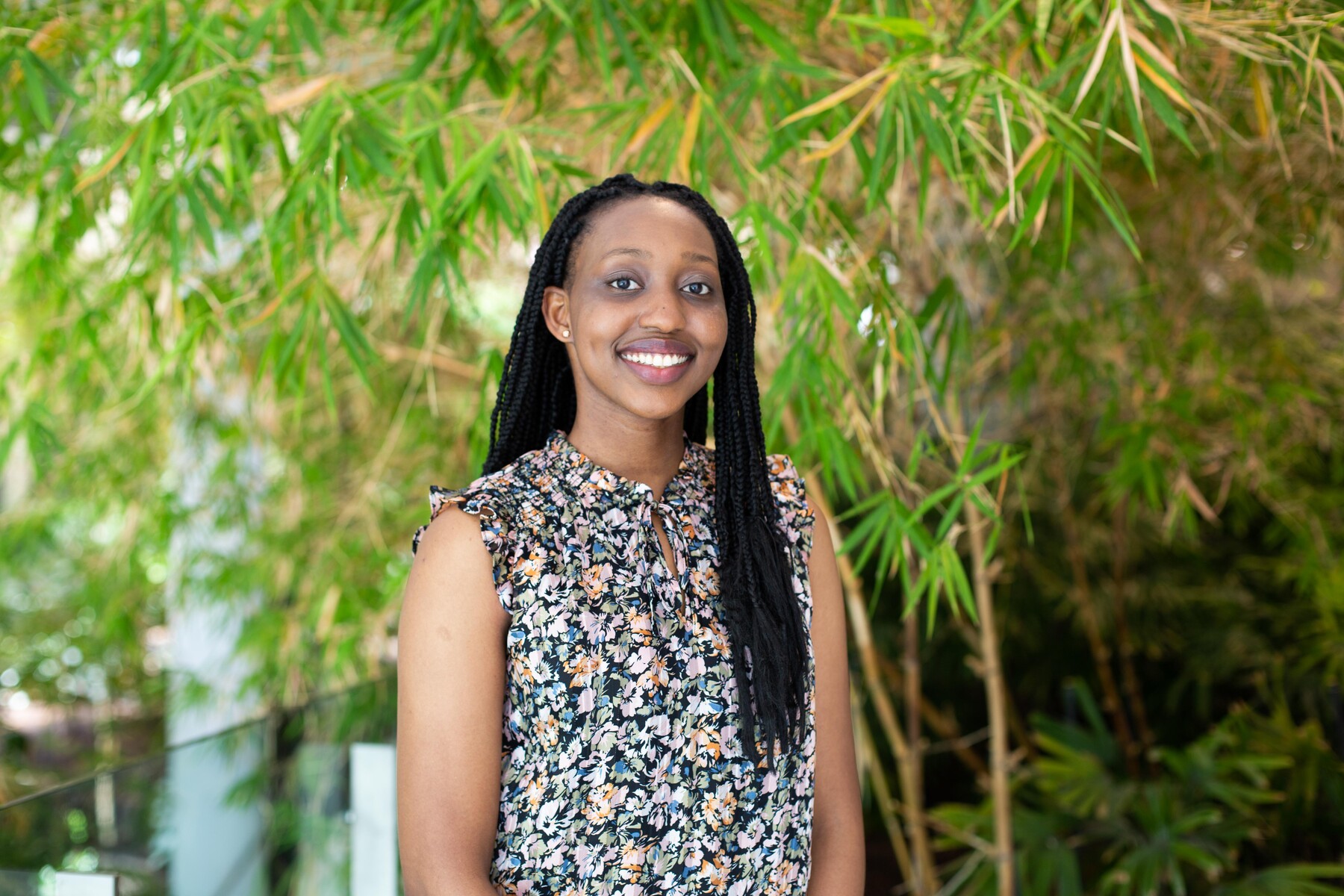
Happy Inibhunu
Graduating from: MD Program
Up next: Residency in Neurosurgery, Western University
The opportunity to be a part of the care of individuals in their most vulnerable and critical aspects of their lives is an honor. It is quite humbling to work diligently each day to provide the utmost care for patients. Growing up, I was drawn to the career of medicine based on this philosophy. As I continued to venture within medical school, I began to expand on this through the incredible advancements in the field of neuroscience. I look forward to continuing to follow suit with these aspects of medicine while gaining new experiences, mentorship, and patient relations throughout residency and beyond.
Time goes by really fast, as sometimes I often rewind back to orientation and am amazed of the incredible friends I have made these last four years. Some highlights of my medical school journey are my first ever triathlon, receiving an Honorable Mention by the Canadian Society of Palliative Care for my written piece penned "10:30,” providing care to patients throughout the COVID pandemic through virtual and in-person means, and undoubtedly achieving my dream of becoming a neurosurgery resident. These last four years in Toronto helped define the physician I aspire to be by building interdisciplinary and multidisciplinary networks in a harmonious manner, creating positive, empathetic and trustworthy rapport with patients, and having the extraordinary opportunity of striving diligently to provide care to neurosurgical patients as a life-long vocation.
Being part of the 2T2 class, who spent more than half of our medical school within the COVID pandemic, navigating clerkship during the pandemic was certainly a hard obstacle to overcome. Striving to build rapport and guidance with patients through the distance created with by Personal Protective Equipment (PPE) while balancing the uncertainty of the pandemic placed another layer of complexity to our learning. However, a defining characteristic that resonated through the pandemic is the ability to recognize, acknowledge, and strengthen virtues of humanity. For instance, sharing a laugh, providing extra time within visits, supporting one another, and always remembering the person is separate from the disease. With this mindset, more unique aspects of clerkship and the pandemic shone through while building a community throughout my rotations among physicians, residents, allied healthcare professionals, patients and caregivers.
My family, which includes my parents and two brothers, are the steady fixtures who have always been a sense of guidance, motivation, and immense joy in my life. I will forever be thankful for the many opportunities and sacrifices they have encountered for me to live out my dream. Additionally, I am truly grateful for the remarkable mentors I have had throughout my medical school journey. Whether as a preceptor during portfolio or ICE Clinical Skills or as my mentor guiding me through the practice and care of patients in all sectors of medicine, especially neurosurgery, I really do appreciate you for always creating incredible environments to learn and grow while sharing your wisdom and advice related to medicine, lifestyle, wellness, and hobbies outside of medicine. Lastly, I want to give a big thank you to all those who have and continue to motivate me to seek my potential and have guided me through to accomplish my passion throughout all these years from my teachers to my coaches.
I have been aspiring for this moment for a long time. To be one of the incoming PGY1 neurosurgery residents at Western University is a humbling honor. I am excited to continue on this path towards providing optimal care for patients, similar to my mentors, paving the way for me to soon become a well-rounded, skillfully trained neurosurgeon. Ready to embark on new experiences, learning opportunities, mentorships, team environments, and a new city. Embarking from this, I hope to apply this training to advance care for all patients, regardless of their social determinants of health.
Advice for incoming students: It is often common to feel out of place in new situations, especially in medical school. You might hear of the phrase "imposter syndrome" in your first few weeks of orientation and throughout your career. Try not to be intimated by this phrase. Instead use it as a template to branch from. To get to where you are, it takes sacrifice, passion, and excitement to dedicate your life to the betterment of others. As you encounter new experiences, try to embrace the new and unexpected but do not let it deter you from finding more attributes of who you are. Each person has their own path, with many twists, valleys, and peaks. This is analogous to the art of medicine. I wish you good luck.
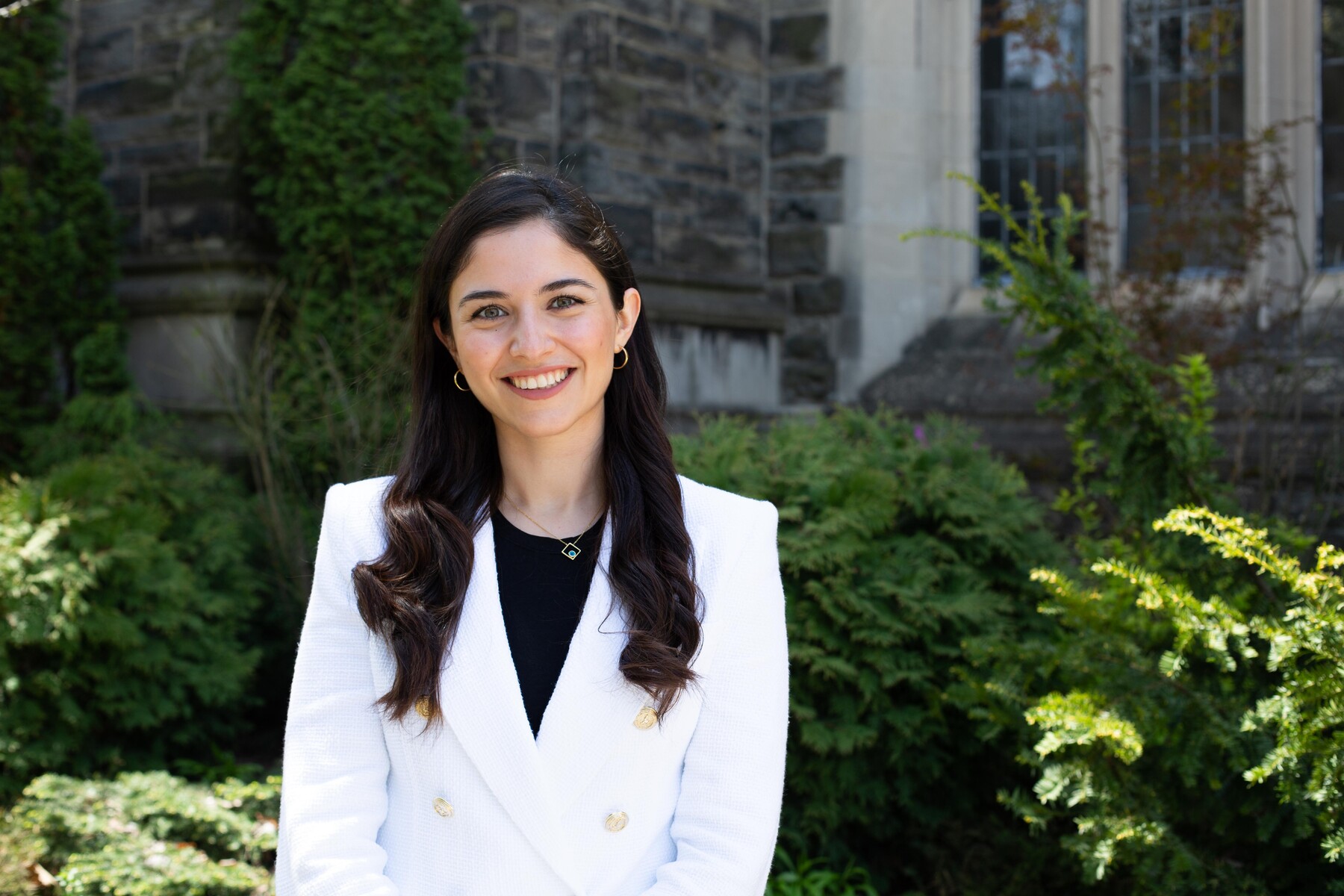
Tina Marvasti
Graduating from: MD/PhD Program
Up next: Residency in Internal Medicine, University of Toronto
As a young child, I saw my father being cared for by many physicians after having a heart attack. I grew up fascinated by their knowledge, compassion, and ability to care for my loved one. As I grew older, I was intrigued by human physiology and during my undergraduate studies at the University of Toronto, started working in research laboratories across multiple departments. I found the intersection between medicine and science fascinating. The ability of clinician-scientists to identify gaps in current medical practice, investigate possible creative solutions and translate them back to improve care excites me. As I look forward to my career as a clinician-scientist in training, I am passionate about patient care, innovation, and healthcare quality improvement.
My doctoral research project under the supervision of Dr. Ren-Ke Li was in the field of cardiac regenerative medicine. We developed a humanized mouse model of patient derived hematopoietic stem cells in order to characterize the role of the immune system in heart repair. Through this project, we recruited patients, analyzed their hematopoietic stem cells, and developed personalized mouse models from them. We were able to identify particular immune cell types with impaired activity in elderly patients which made their heart less likely to heal after a heart attack. Future work will aim to identify factors that can help boost the activity of these cells in this elderly population.
Putting aside the clinical and research experiences during my training, the highlight of my MD/PhD journey has been meeting my husband, Siraj Zahr with whom I am starting residency this year. I also met some of my best friends in this program who made the challenging times more manageable.
I’d say one of the biggest challenges I faced early on was learning to become comfortable with the feeling of discomfort that one has when pursuing uncertain projects and remaining motivated after failed experiments. Through these experiences, I realized that every failure teaches you a valuable lesson, and I am so thankful for realizing the importance of this attitude before entering the clinical world.
I grew up in a family that never placed any limit on my aspirations. My parents decided to move to Canada to provide me and my younger brother with opportunities not available in our native country. I am forever grateful for their sacrifices. I would also like to thank my earlier mentors such as Dr. Andrew Baines, Dr. Khosrow Adeli and Dr. Alan Moody who provided me with research opportunities and encouraged me to pursue this path. Also grateful for the mentorship and support of our program directors, Dr. Norman Rosenblum and Dr. Nicola Jones who pushed me to fulfill my scientific potential. I’d also like to thank my PhD supervisor, Dr. Ren-Ke Li who was a source of support and guidance throughout this journey. Last but certainly not least, I am so thankful for the love and support of my partner in life, Siraj, without whom this journey would have not been nearly as fulfilling.
I am very excited to continue my training in Toronto. I look forward to further advancing my clinical and research skills by working with the expert clinicians and scientists in the city and abroad. I also hope to be able to make a positive impact in my patients and colleagues’ lives on a daily basis.
Advice for incoming students: Challenge yourself and do not be afraid of failure. It is only through our failures that we become conscious of aspects of ourselves that require improvement. They can be our guides. Challenge yourself beyond your comfort zone and seek feedback from others. Constructive feedback can make you aware of your blind spots and when delivered correctly can be very helpful for your advancement. Last but certainly not least, don’t forget the privilege of taking care of patients in their vulnerable states. Be kind, gentle, and listen to them.
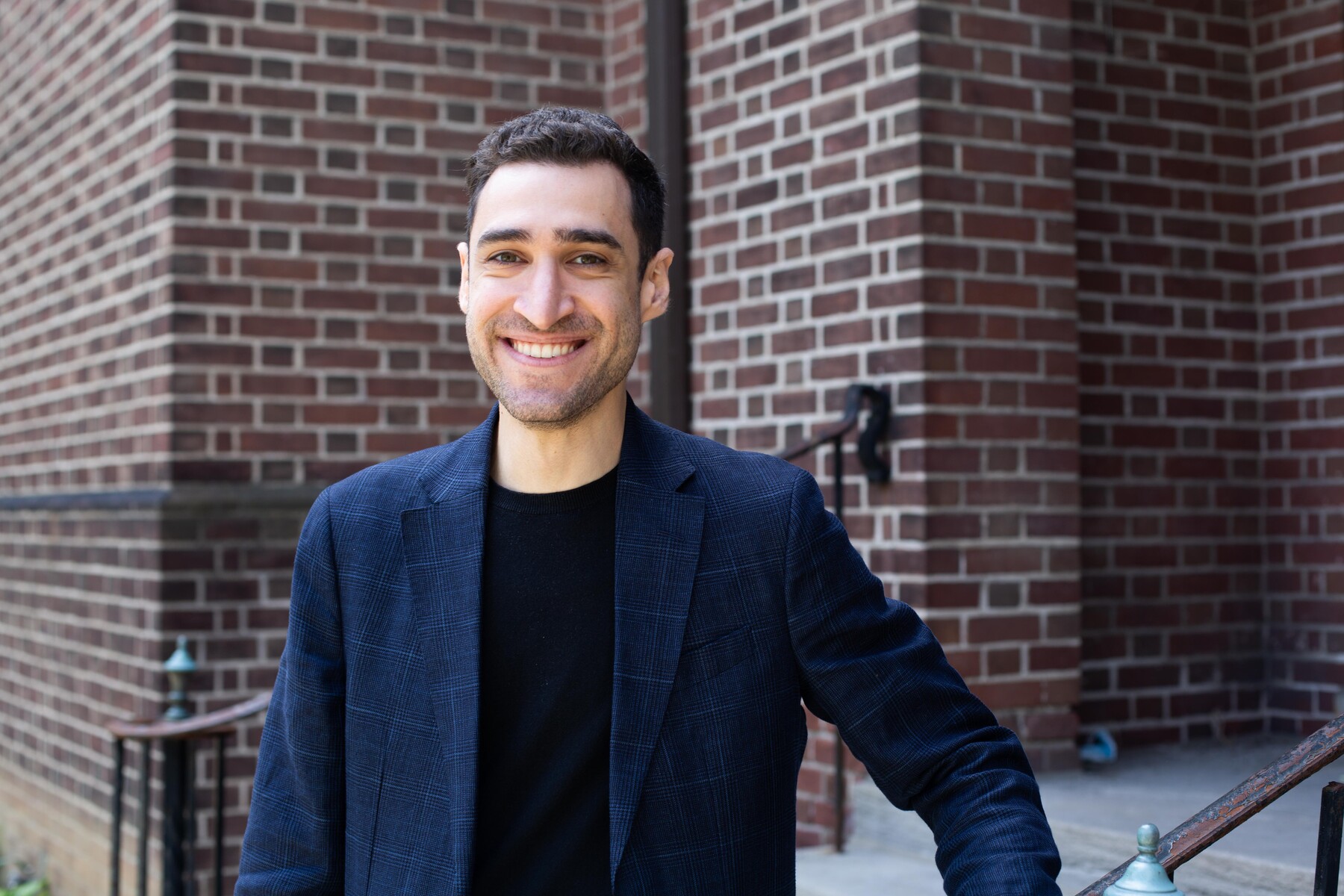
Siraj Zahr
Graduating from: MD/PhD Program
Up next: Residency in Anesthesiology, University of Toronto
My interest in becoming a physician scientist stems from innate curiosity. To the observable annoyance of some of my early schoolteachers, I always asked several questions aiming to understand how a given phenomenon worked, or the rationale behind learning a particular topic. When applied rigorously, I think that the scientific method is the best tool to formulate and test different hypotheses. Looking ahead, anesthesiology offers many avenues for scientific investigation as it encompasses the entire spectrum of medicine and surgery. I’m interested in mechanisms of action of certain anesthetics on brain activity, as well as chronic pain mechanisms and treatment. The interplay between what we categorize as psychiatric/mental versus physical in chronic pain disorders, and therapeutic modalities that target both, is a particularly exciting area to me.
My main doctoral research under the supervision of Dr. Freda Miller and Dr. David Kaplan revolved around how neurons are generated from neural stem cells to build the mammalian cortex. The cortex underlies our perception of sensory information, performance of motor activities, and higher-order cognition, so you can imagine that aberrations in this process can lead to a whole host of disorders.
Honestly, my biggest highlight would have to be meeting my wife, Tina Marvasti, who I couples matched with. Other highlights are the friendships I’ve made and inspiring mentors I have met who have made me feel at home in Toronto.
I have faced many challenges, both academically and personally. Not to bore you with the details, but some useful things I have learned is that challenges are inevitable, necessary for growth, and that it is ok to lean on others for advice and guidance when you’re stuck. Don’t be a martyr.
First and foremost, I’d give a shout out to my parents—I stand on their shoulders. My family and close friends, for making the triumphs worth it and for helping me through the storms. Freda and David, my scientific mentors, who modeled such a high standard of how to think about scientific questions and communicate effectively. Last but not least, my clinical mentors who have supported me: Dr. Unger, Dr. Nandra, Dr. Goldmacher, Dr. Ladowski, Dr. Taam, Dr. O’ Leary, Dr. Wolter, Dr. Clavel, Dr. Sarmah, among many others.
As I embark on the next phase of training, I look forward to developing focused clinical expertise and independence in managing patients of varying complexity and acuity. I’m also looking forward to learning from the fantastic clinical and scientific mentors in anesthesiology.
There is a proverb of unclear origin that goes: "The person who asks is a fool for five minutes, but the person who does not ask remains a fool forever.” In medicine and science, you are faced with many unknowns or unfamiliar territory that naturally evoke fear. I’ve noticed that there is sometimes a hidden pressure that even the most junior and inexperienced trainees need to always appear more certain and knowledgeable than is the case. So, in addition to the natural fears one has, there is an added pressure to behave with false certainty despite lack of experience. I think this really stunts learning and understanding, and is ultimately bad for patient care.
Advice for incoming students: Be humble, stay curious, maintain a growth mindset, and ask genuine questions if you don’t understand something. Essentially, be willing to be a fool for a bit. I also recommend exploring fields outside of medicine and science. This allows you to make broad connections and learn more than you ever could from your main area of expertise alone.
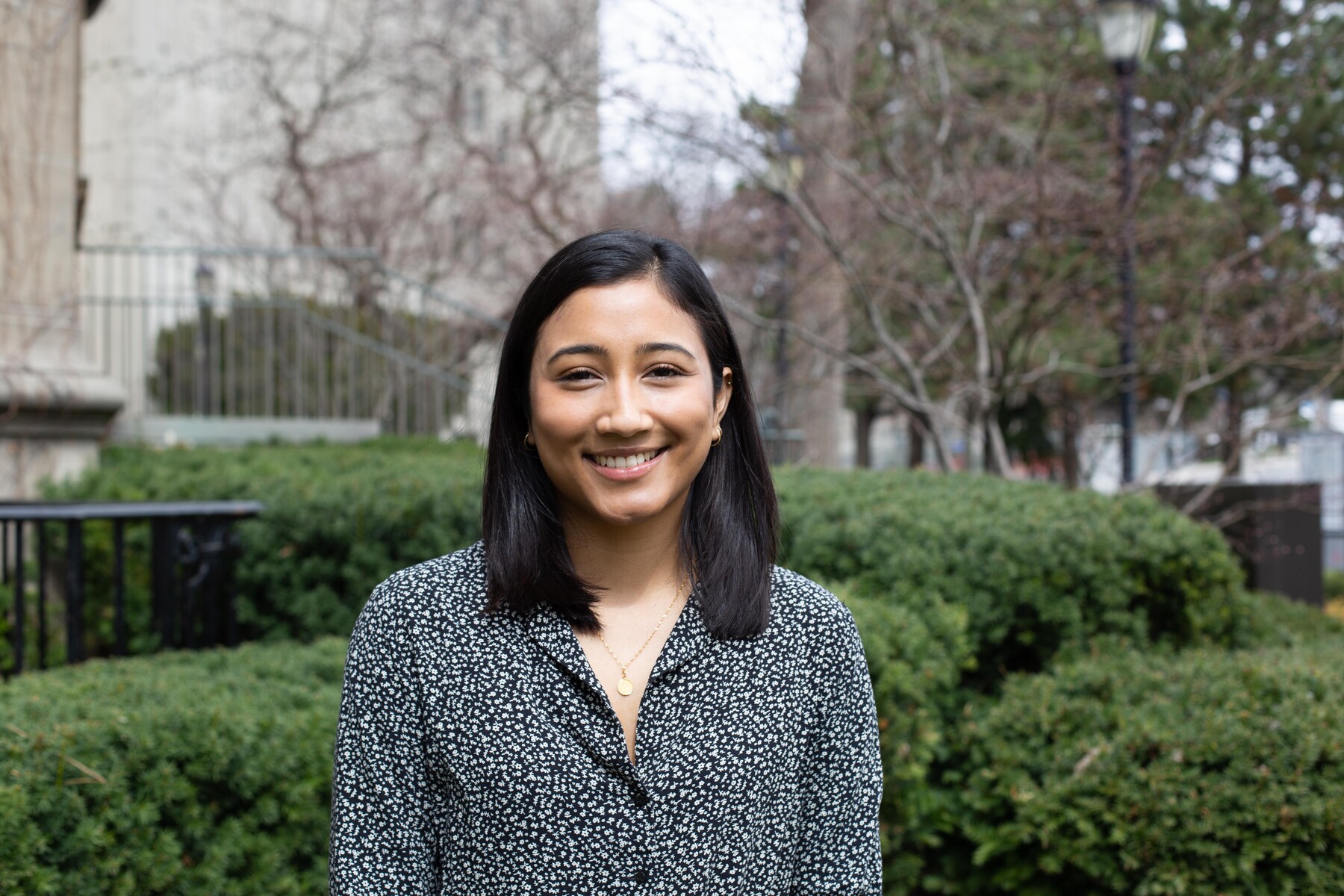
Pearl Zaki
Graduating from: MD Program
Up next: Residency in Paediatric Neurology, University of Toronto
To be a physician is quite a privileged role. We enter people's lives often at their worst times, we have to deliver difficult, life-altering diagnoses, and so much more. The ability to build trust and forge relationships with our patients and their families, usually in a relatively short amount of time, is unique and a gift. My recent experiences in the clinical environment over the course of the pandemic have allowed me to witness and learn firsthand the significant inequities faced by marginalized and vulnerable populations in our communities. I feel very fortunate to have learned the stories and struggles of my patients and I hope to utilize my skills and resources as a physician to help to build and grow fair and equitable healthcare systems.
The highlights of medical school for me include the connections and friendships I formed with my peers, colleagues, and patients along the way, even despite the many layers of PPE between us. I feel very fortunate to have been able to work with brilliant and dedicated physicians who continued to make time to teach me despite growing patient lists, residents who always reminded me to eat lunch and take breaks, and my friends, who would always greet me happy eyes and big waves in the hallways. Even now, as I think back on the hard days and long call shifts, I mostly recall the help I received or the laugh I shared or the smiling face that I finally came home to.
The last two years of medical school, under the best of circumstances, can be difficult. With a pandemic added on top, it was uncharted territory. I could not have navigated through this time without my family, partner, and close friends, who provided comfort during the tough days and celebrated the good ones. Along with this, I found a strong sense of community among the teams I worked with in the hospitals. I think our experience of the pandemic has helped to positively shift our attention to our personal wellbeing along with that of our patients'. As I begin residency and as things may perhaps be returning to old and familiar ways, I hope to keep these teachings close to my heart and integral to my practice of medicine.
It still feels surreal to me that I will be starting this next chapter of my career in a field where I continue to find so much wonder and hope and work with (in my opinion) the most delightful and resilient patient population. And to be doing so in my hometown, where I will be able to serve the communities I grew up in, with the support of my family and friends nearby, is an absolute dream. I cannot wait to learn all things Paeds Neuro from not only the experts in the field, but also the children and their families.
Advice for incoming students: Just enjoy the process. You don't have to know all the answers all the time, instead lean into the process of being wrong sometimes and constantly learning from your experiences.
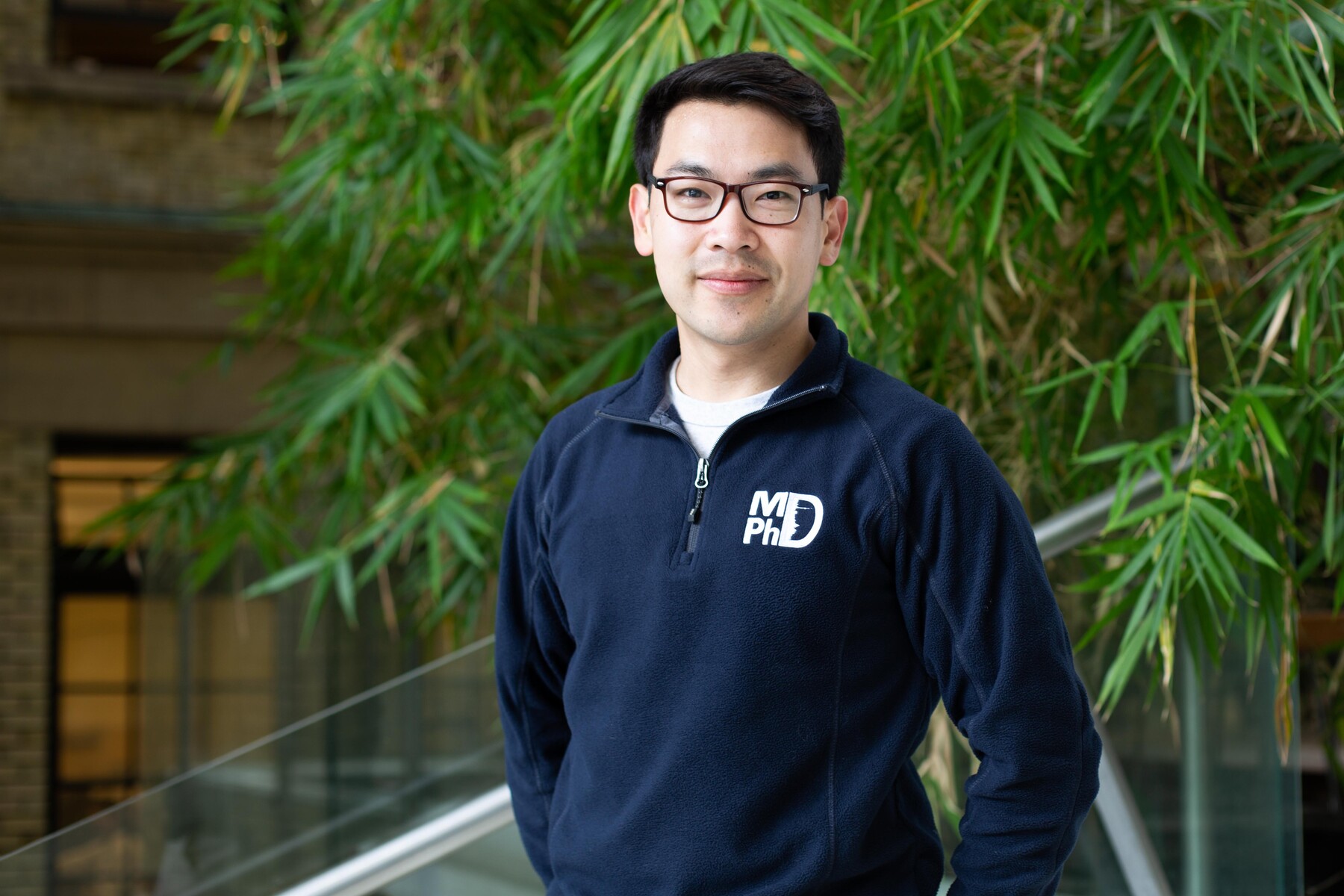
Ben Ouyang
Graduating from: MD/PhD Program
Up next: Residency in Internal Medicine, Physician-Scientist Pathway, Massachusetts General Hospital
I discovered the physician-scientist pathway during a research internship in 4th year of my undergrad. I first fell in love with science, and then found out that physicians could apply current medical knowledge to treat patients, and also continue to ask questions to push new boundaries of patient care. It seemed like an ideal mix of curiosities and investigation, paired with meaningful impact to patients and their families.
My PhD research focused on cancer drug delivery. I discovered a nanoparticle dose threshold that needs to be exceeded to overcome the body's clearance systems and then enhance nanoparticle accumulation into tumours. I used this discovery to invent a method using decoy nanoparticles to distract clearance systems and improve the tumour-killing ability of chemotherapy-loaded nanoparticles without toxic side effects.
I'll always be most grateful during my MD training for the privilege to witness the humbling mysteries of the human body during diverse rotations in 3rd year – a child with a love for the sound of running water, an immune system going haywire and attacking the body, a terrifyingly unstoppable tumour. I learned an incredible amount from the healthcare teams and the patients. In my PhD, I'll remember fondly singing slow jams with my team to boost morale as we dissolved hundreds of tissue samples in acid to measure drug concentrations, and go-for-lunch sessions with labmates. The biggest challenge throughout the MD/PhD process was learning how to synergize the two degrees, which currently to me feels to be where medicine meets science at pathophysiology of disease.
I've been privileged and lucky to have so many friends and mentors guiding me throughout this journey, including my mom and dad, my partner Cynthia Shin, my friends who eat spam, Warren Chan, Wilson Poon and Yinan Zhang and labmates, Deepan Arulchelvam, Mohammad Shafiee, Norman Rosenblum, Adam Durbin, and my MD/PhD cohort.
I'm looking forward to learning more medicine, uncovering disease mechanisms, and developing therapeutics to push the boundaries of healthcare.
Advice for incoming students: Invest time and energy into discovering true personal passions, then follow them as far as they'll go.
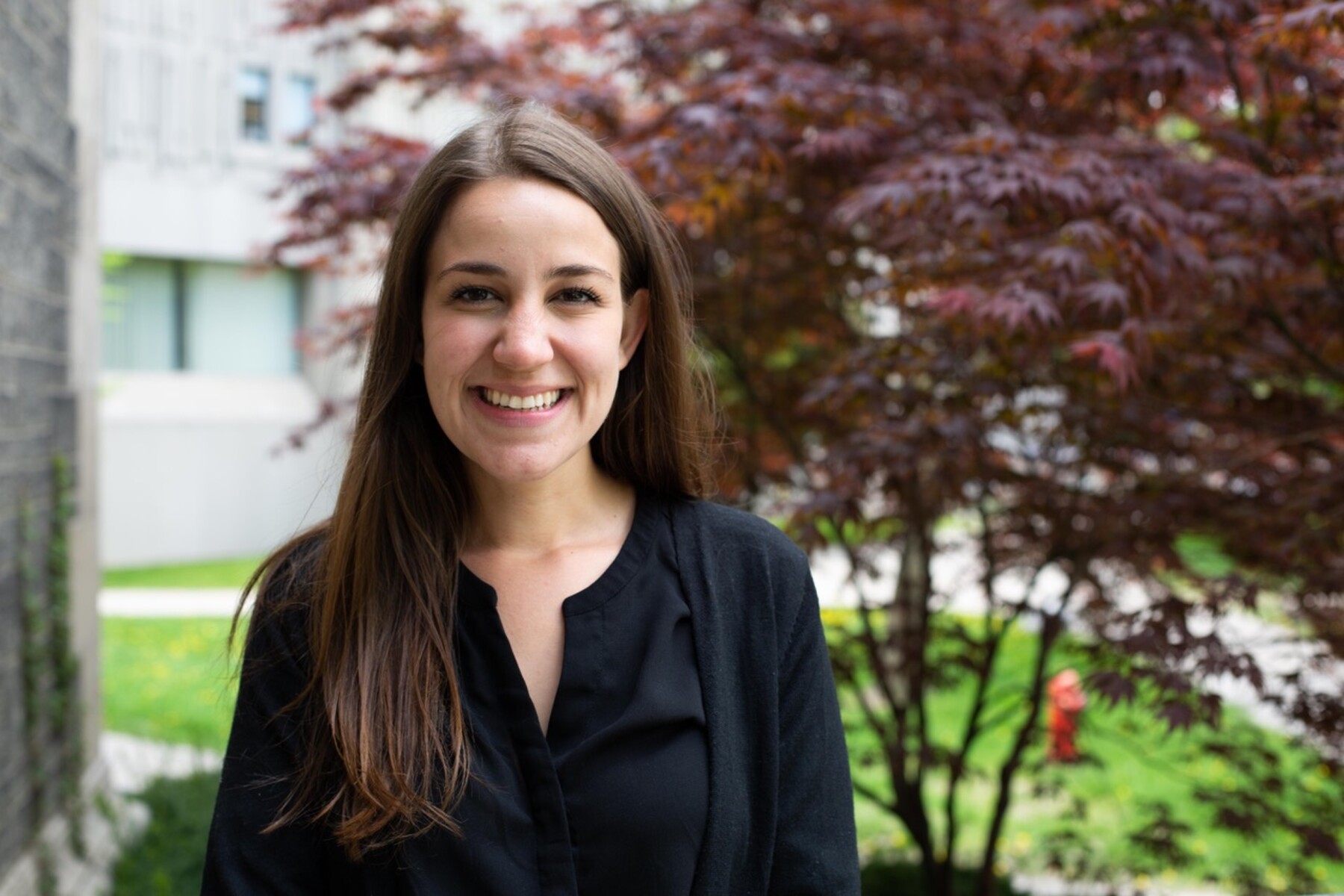
Melinda Caputo
Graduating from: MD Program
Up next: Residency in Family Medicine, University of Toronto
One of the things that drew me to medicine and has kept me going throughout medical school is the opportunity to connect with people and support them through some of the most exciting and vulnerable moments of their lives. While I spent my fair share of time at Gerstein library, I truly learned the most about medicine & myself through the patients I’ve met. As I head into this new stage as a family medicine resident, I’m really looking forward to learning from and serving my community.
A big highlight for me has been getting to know so many amazing people through music – the talent in the class of 2T2 completely blew me away. I had so much fun playing with Orbital Groove and being part of the Daffydil musical! Moving to Toronto for med school and leaving my hometown of Ottawa felt like such a big jump at the time but it led me to some of my very best friends. Running along the harbourfront, spending way too much money on concert tickets, trying out new restaurants and catching up in the hospitals. The chance to share little moments with these people has really made Toronto feel like home.
Clerkship is tough to start with but throw in a pandemic and it’s an entirely different ballgame. It’s hard to feel steady on your feet when you’re in a new place, practicing a new skill, surrounded by new people every few weeks. In the face of these challenges, I feel so lucky to have had so many wonderful people cheering me on along the way. My family, who never missed a phone call and were a constant source of support in a chaotic world. My friends, both in and outside of medicine, who always said yes to a chat or physically distanced walk. My mentors, like Dr. Nikita Patel at Women’s College Hospital, who helped show me the kind of family doctor I hope to become.
I can’t wait to step into this next chapter and explore the field of family medicine! I’ve also met some great mentors in med school and I’m excited to carrying that forward as I step into this new role as a resident!
Advice for incoming students: Four years has gone by faster than I could have imagined so I’d say to pay attention to the little moments as you go. I’d also highlight how important it is to look out for each other – a small check-in can go a long way.
News
